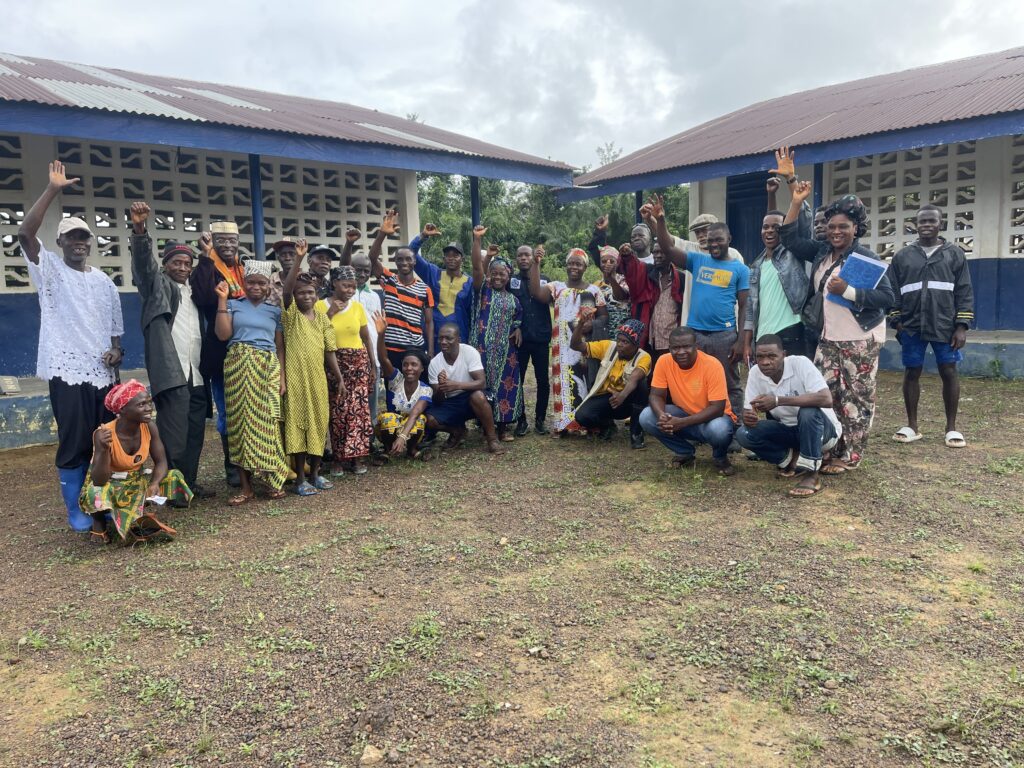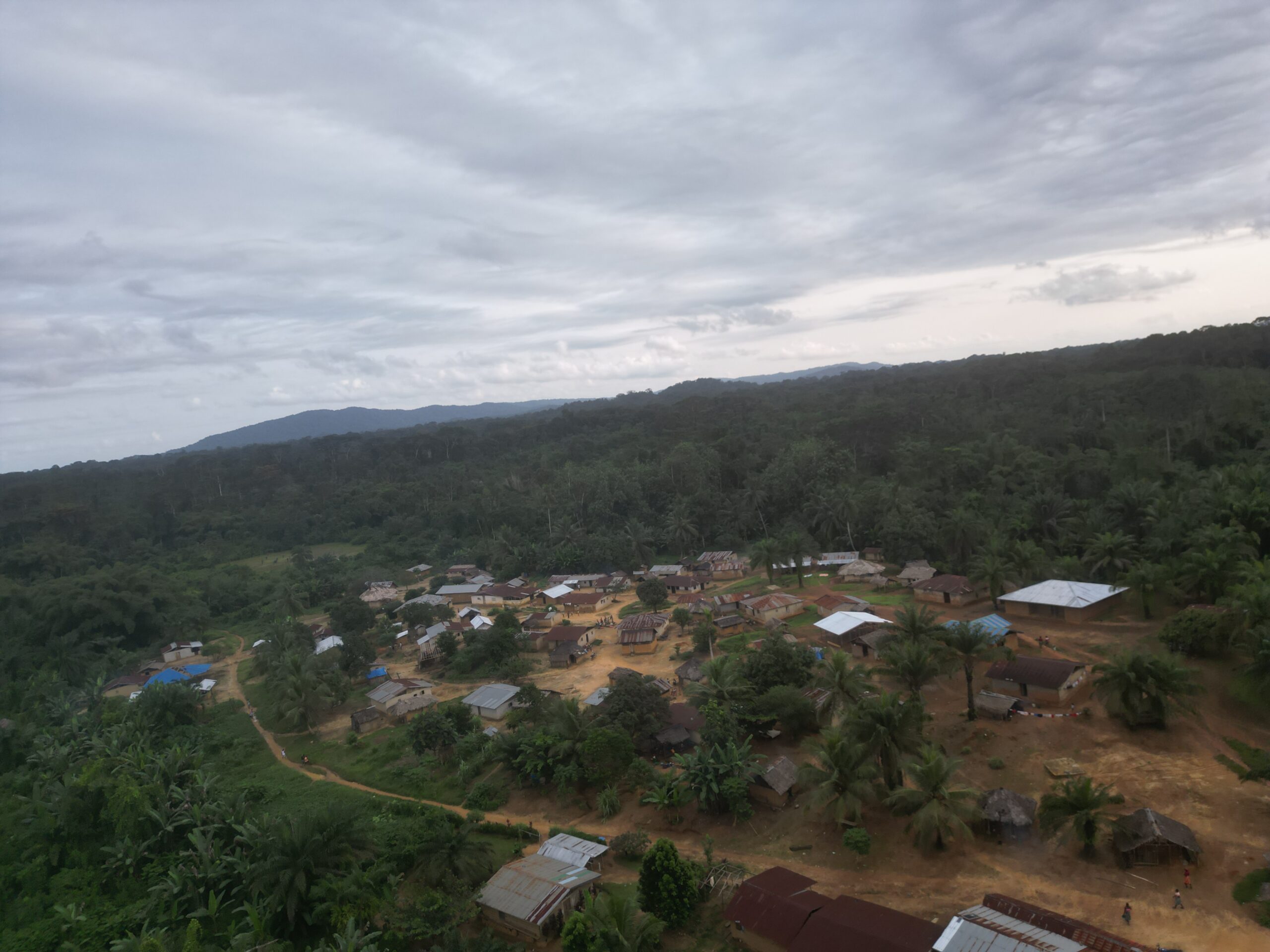Top: Ziadue, Teekpeh and Dorbor have all reached the confirmatory survey stage in the legal process to obtain their customary land deed. The DayLight/Carlucci Cooper
By Esau J. Farr
CENTRAL RIVER CESS DISTRICT – Three clans in River Cess County have met the requirements for a government-conducted survey, the final legal step leading to a customary land deed.
Ziadue, Teekpeh and Dorbor—all in the Central River Cess District—reached the landmark early last month.
“We are aware that three communities are ready…,” said Lincoln Flomo, the head of the monitoring and evaluation division of the Liberia Land Authority (LLA).
Flomo said the leaderships of the three communities would have to meet with LLA representatives and civil society organizations (CSOs) before the survey was conducted.
The Ziadue, Teekpeh and Dorbor self-identified as landowning communities, mapped their respective boundaries and drafted bylaws and constitutions to reach this stage. They formed their respective leadership structures, known as community land development and management committees or CLDMCs.
The Land Rights Act grants rural community people ownership of traditional land but requires them to go through a legal process to get a deed.
“I am happy to get our land deed because the forest [is]for us and our children will benefit,” said Betty Gaywea a member of Ziadue’s CLDMC.
Prior to the passage of the Liberia Land Rights Act, rural communities did not own the land they lived on and did not have a say in the management of its resources.
The law grants members of rural communities the right to manage their lands and benefit from their resources.
“Getting the land deed will empower us to tell people that the land belongs to us,” said Patience Smith, a member of Teekpeh’s CLDMC member.
Having started their journeys in 2020, two years after the signing of the law, the three clans resolved long-standing disputes in the process.
Ziadue, Teekpeh and Dorbor had a conflict over a town named Sand Beach Junction. After two years of claims and counterclaims, Ziadue and Dorbor surrendered the town with more than 30 houses to Teekpeh.
Ziadue and Teekpeh also had a four-year conflict over Yarvoi Town, according to locals.
“It was tense to the extent that people from both clans carried cutlasses and single-barrel guns but there was no firing or injuries,” recalled Jackson Sando of the Sustainable Development Institute (SDI). The NGO is helping the clans meet legal requirements for their deeds as part of a US$3.54 million project.

Dorbor had a major boundary dispute with Gbarsaw, another clan, over a parcel of farmland across a creek. The conflict ended with Gbarsaw prevailing.
“I am happy because we had problems with our boundaries and you people have come and settled everything because we want our deeds,” said Nancy Garpu, Clan Chief of Garpu Clan.
SDI has been working with the communities under the Tenure Facility project to assist them in getting deeds to their ancestral lands since 2020.
Ziadue, Teekpeh and Dorbor add to scores of communities across the country that are awaiting confirmatory survey, according to the LLA.




